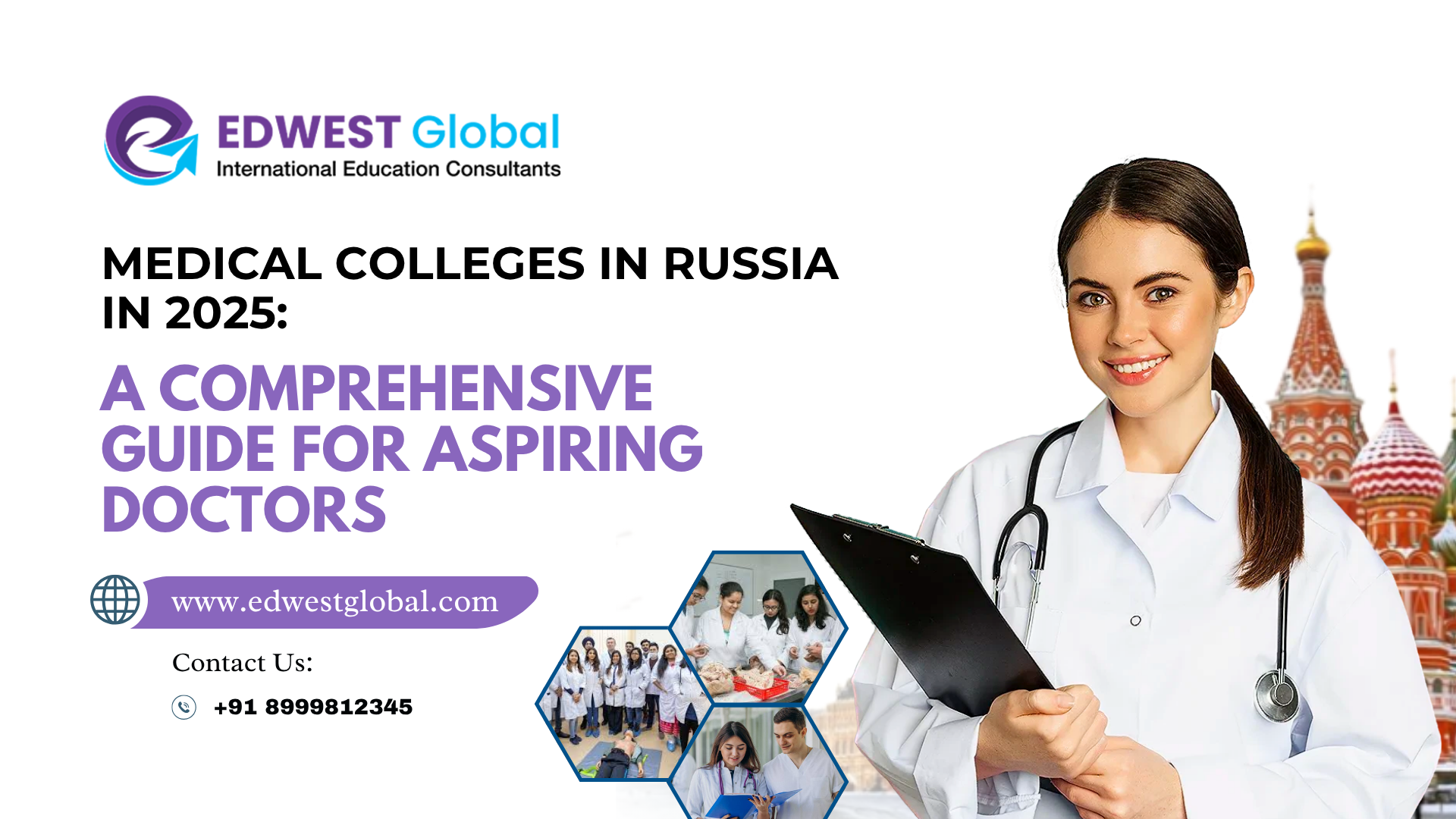Medical Colleges in Russia in 2025: A Comprehensive Guide for Aspiring Doctors
Embarking on a medical career in Russia in 2025 offers aspiring doctors access to globally recognized education, diverse clinical experiences, and a multicultural environment. With numerous medical colleges in Russia renowned for their academic rigor and research, students can learn from leading professionals and participate in cutting-edge medical advancements. This comprehensive guide explores the landscape of medical education in Russia, highlighting top medical universities, admission requirements, tuition fees, and opportunities for international students—optimized for those searching for “Medical Colleges in Russia in 2025.”
Understanding Medical Education in Russia
The path to becoming a physician in Russia typically involves enrolling in a six-year Doctor of Medicine (MD) or MBBS program. Unlike some countries, Russian medical colleges often accept students directly after secondary school, making it an attractive option for international applicants. The curriculum combines theoretical knowledge with extensive clinical training, ensuring graduates are well-prepared for medical practice.
Top 10 Medical Colleges in Russia
Russia is home to several prestigious medical universities recognized for their academic excellence and research contributions. Here are the top 10 medical colleges in Russia for 2025:
- Lomonosov Moscow State University – Faculty of Medicine
- Known for its advanced research facilities and experienced faculty.
- Sechenov University (First Moscow State Medical University)
- Russia’s oldest medical school, renowned for clinical training and international programs.
- Pirogov Russian National Research Medical University
- Focuses on innovative teaching methods and global health initiatives.
- Saint Petersburg State Pediatric Medical University
- Specializes in pediatric medicine and offers strong clinical exposure.
- Kazan Federal University – Institute of Fundamental Medicine and Biology
- Emphasizes research and international collaboration.
- Novosibirsk State University – Faculty of Medicine
- Recognized for its research-driven curriculum and modern facilities.
- Peoples’ Friendship University of Russia (RUDN University) – Faculty of Medicine
- Known for its multicultural environment and English-medium programs.
- Siberian State Medical University
- Offers comprehensive clinical training and research opportunities.
- Far Eastern Federal University – School of Biomedicine
- Focuses on medical innovation and global partnerships.
- Volgograd State Medical University
- Popular among international students for its English-language MBBS program.
Admission Requirements for Medical Colleges in Russia
Admission to Russian medical colleges is competitive and involves several key requirements:
- Secondary School Certificate: Completion of 12 years of schooling with strong grades in science subjects (Biology, Chemistry, Physics).
- Entrance Examination: Some universities may require an entrance test or interview.
- Language Proficiency: Many programs are offered in English, but knowledge of Russian is beneficial for clinical practice.
- Passport and Visa: International students must have a valid passport and obtain a student visa.
- Medical Fitness Certificate: Proof of good health is often required.
Tuition Fees: An Overview (INR)
Tuition fees for medical colleges in Russia are generally more affordable compared to Western countries, making Russia a popular destination for international medical students. Below is an overview of approximate annual tuition fees for international students in 2025, in Indian Rupees:
| Institution | Tuition (INR/year) |
| Lomonosov Moscow State University | ₹9,13,000 |
| Sechenov University | ₹8,71,500 |
| Pirogov Russian National Research Medical University | ₹7,88,500 |
| Kazan Federal University | ₹5,81,000 |
| Peoples’ Friendship University of Russia | ₹7,05,500 |
| Siberian State Medical University | ₹4,15,000 |
| Volgograd State Medical University | ₹6,22,500 |
| Saint Petersburg State Pediatric Medical University | ₹5,39,500 |
| Far Eastern Federal University | ₹4,98,000 |
| Novosibirsk State University | ₹5,81,000 |
Note:
- Fees are approximate and may vary with exchange rates and university policies.
- Always check the official university website for the most current and accurate fee details.
- Living expenses and other costs are not included in the tuition figures above.
Opportunities for International Students
Russia actively welcomes international students into its medical programs. Many universities offer English-medium MBBS courses, and some have dedicated support services for international students.
- Limited Seats: Some universities have a cap on international admissions.
- Recognition: Many Russian medical degrees are recognized by the World Health Organization (WHO), Medical Council of India (MCI/NMC), and other global bodies.
- Scholarships: Select universities and government agencies offer scholarships for outstanding international students.
Private Medical Colleges in Russia
While most medical universities in Russia are publicly funded, there are a few private institutions offering medical programs. Prospective students should verify the accreditation and global recognition of these colleges before applying.
Regional Highlights: Medical Colleges Across Russia
- Medical Colleges in Moscow: Lomonosov Moscow State University, Sechenov University, and Pirogov Russian National Research Medical University are leading institutions.
- Medical Colleges in Saint Petersburg: Saint Petersburg State Pediatric Medical University and Pavlov First Saint Petersburg State Medical University are notable.
- Medical Colleges in Kazan: Kazan Federal University is a top choice for international students.
- Medical Colleges in Novosibirsk: Novosibirsk State University is recognized for its research focus.
- Medical Colleges in Volgograd: Volgograd State Medical University is popular for its English-medium MBBS program.
Postgraduate Medical Education (PG) in Russia
After earning an MD or MBBS degree, graduates can pursue postgraduate training (residency) in Russia. These programs offer specialization in various medical fields and are open to both domestic and international graduates, subject to entrance exams and language requirements.
MCI/NMC Approved Medical Colleges in Russia
For Indian students, attending an MCI/NMC-approved medical college in Russia is crucial for practicing medicine in India after graduation. Some recognized universities include:
- Sechenov University
- Pirogov Russian National Research Medical University
- Kazan Federal University
- Volgograd State Medical University
- Peoples’ Friendship University of Russia
Always consult the latest National Medical Commission (NMC) list for updated information.
Affordable Options: Cheapest Medical Colleges in Russia
Budget-conscious students will find several Russian medical colleges with lower tuition fees:
- Siberian State Medical University: ₹4,15,000/year
- Far Eastern Federal University: ₹4,98,000/year
- Saint Petersburg State Pediatric Medical University: ₹5,39,500/year
Remember to factor in living expenses, which are generally lower in Russia compared to many Western countries.
Frequently Asked Questions (FAQs)
Q1: How can I get admission into a medical college in Russia?
Admission typically requires a secondary school certificate, application form, relevant entrance exams or interviews, and a student visa. International students should check each university’s specific requirements.
Q2: Are there private medical colleges in Russia?
Yes, but most are public. Verify the accreditation and recognition of any private institution before applying.
Q3: What are the tuition fees for medical colleges in Russia?
Tuition varies by institution, generally ranging from ₹4,15,000 to ₹9,13,000 per year for international students.
Q4: Can international students pursue postgraduate medical education in Russia?
Yes, international graduates can apply for residency programs, subject to entrance exams and language proficiency.







